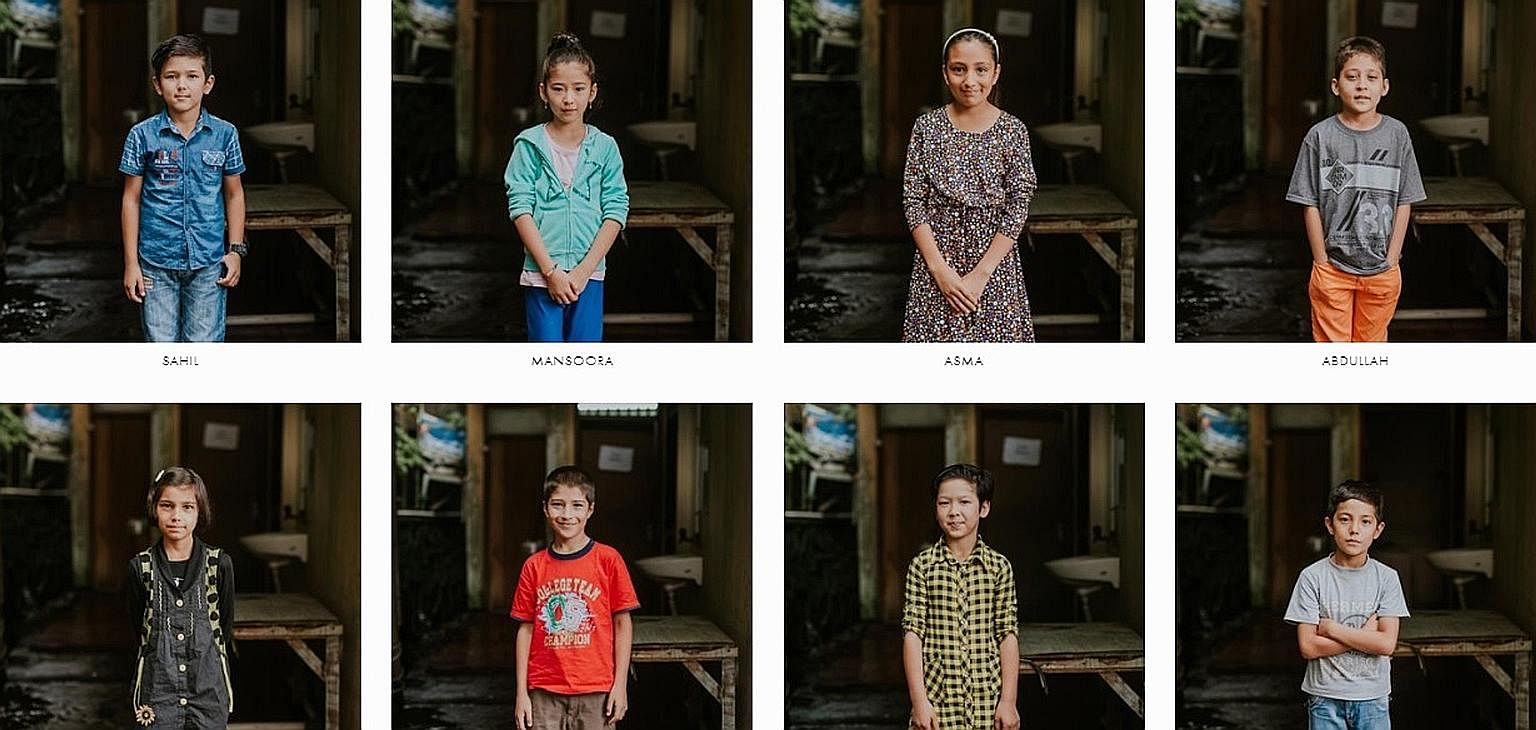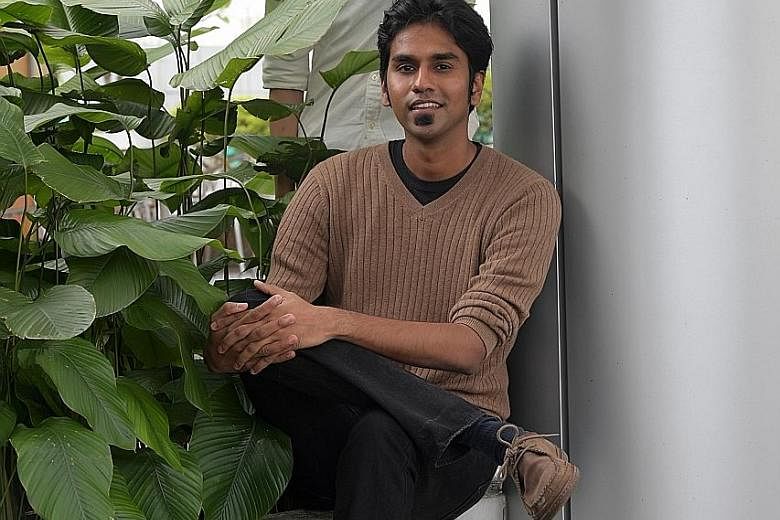When asked what makes her happy, 15-year-old refugee Zainab says it is her dreams.
Before she fled her home in Afghanistan, her father was killed by terrorists. In her dreams, however, she gets to see him again.
Zainab is one of the lost children of Cisarua, a mountain town near Jakarta, Indonesia, that serves as a temporary haven for refugees trying to get from the Middle East to other destinations such as Australia.
In a photo documentary project launching online this weekend, Singaporeans Prabhu Silvam, a journalist, and Kenneth Lee, a wedding photographer, recorded the stories of 85 of Cisarua's refugees, most of them children.
Silvam, 27, who has previously worked on projects such as a photo essay of the 2013 Little India riots, says he embarked on the project out of frustration at how media coverage of the refugee crisis leans towards the sensational or statistical.
"Refugees are so easily labelled and dehumanised," he says. "But each of these people has a story to tell."
While doing research online, he found out about Cisarua, located in the same country as Bali and Batam, where Singaporeans might head to for a weekend getaway.

"The refugee crisis seemed so distant," he says. "I was shocked that it was so close to home."
-
BOOK IT / THE LOST CHILDREN OF CISARUA: LAUNCH
-
WHERE: Artistry Cafe, 17 Jalan Pinang
WHEN: Sunday, 5 to 6.30pm
ADMISSION: Free
He convinced his university friend, Lee, 29, to go with him to Cisarua. To gain access to the reticent community, they had to persuade the Cisarua Refugee Learning Centre, a school set up for and run by refugees, to allow them to visit.
In August last year, they finally got permission to go to Cisarua for 12 days, during which they lived with the family of a former political science professor, who had to flee Kabul because he was being persecuted by the Taleban.
There, they met refugees from Afghanistan, Sudan, Pakistan, Kazakhstan, Iran and Iraq. It is illegal for the refugees to find work, so they rely mostly on remittances from friends and family abroad or on the charity of the United Nations (UN).
There are more than 14,000 refugees and asylum seekers in Indonesia, according to the UNHCR, also known as the UN Refugee Agency. About 5,000 of them live around Cisarua.
For the project, Lee photographed each child against the backdrop of his dilapidated surroundings, while Silvam asked them what makes them happy, what they want to be when they grow up and what they want to tell the world.
The children talked about their dreams of being doctors, architects, pop stars or even the first Afghan footballer to play for Spanish club Real Madrid. In the same breath, they spoke of the beauty of the countries they had left behind or the family they had lost.
One eight-year-old girl from Afghanistan asked Silvam if he, as a writer, had access to databases. Two years ago, men had come to her house and taken her mother and sisters away. Today, she is still looking for them.
For many of the children, it was their first time being photographed. "There is something innocent about taking portraits of kids," says Lee. "They don't fear the camera. They have such a sense of wonder."
After a year of preparation, the project is now up as a website. Silvam and Lee will have a dialogue on Sunday at Artistry Cafe, where they will hold a Skype session with two of the refugee families featured in the project.
They hope the project can help them reach out to other pro bono groups which can provide some of the things the Cisarua refugees need, such as vaccinations and dental aid.
Australian film-maker Jolyon Hoff, one of the Cisarua Refugee Learning Centre's board members, says: "I think the photo documentary is a beautiful record of some beautiful children who have found a way to learn, even while being in the middle of a difficult and unknown journey.
"The refugee children and teachers present the idea that refugees are capable and only want a safe place to live, to educate themselves and to contribute to a peaceful and loving society."


